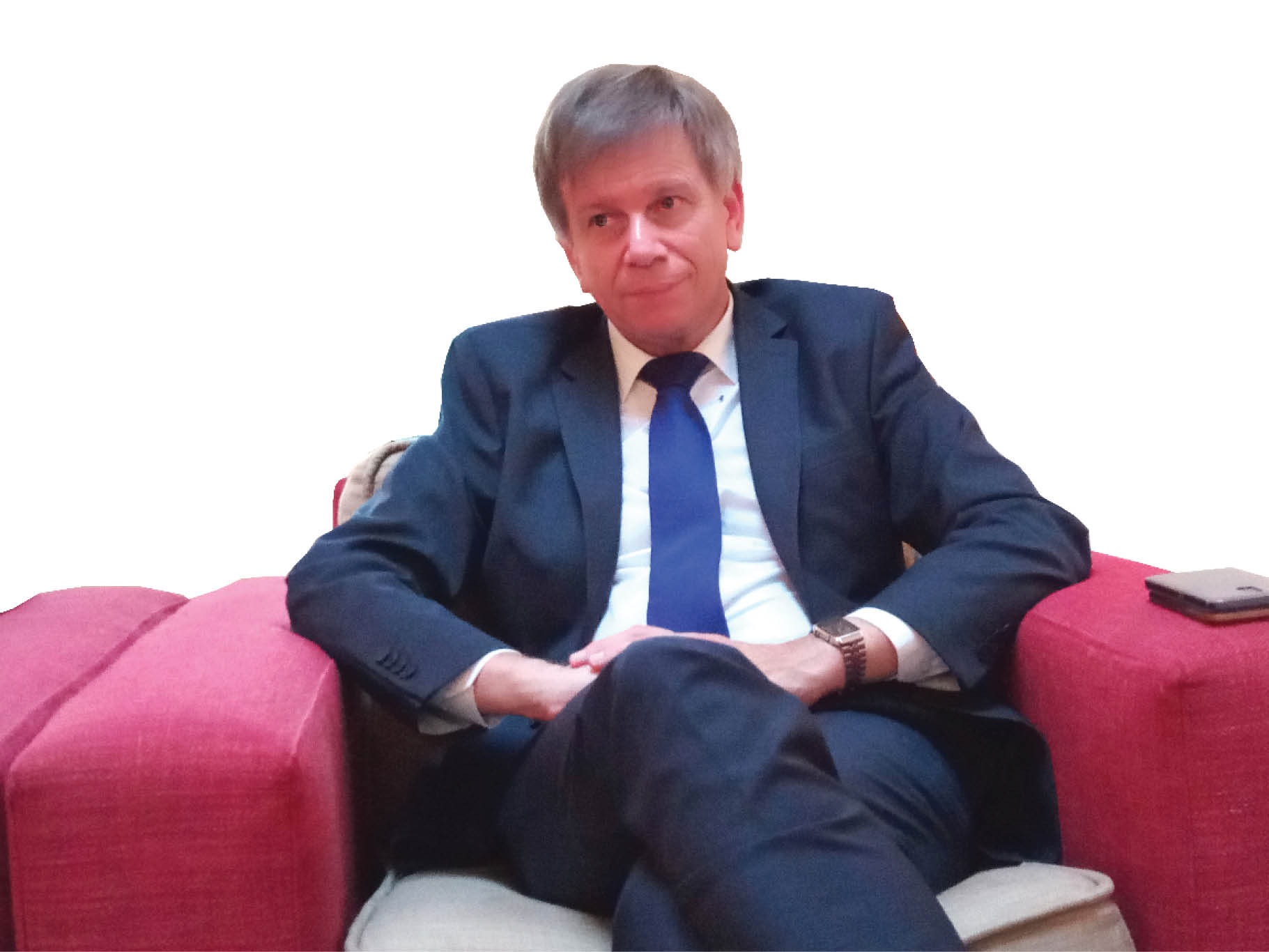Mr Daniel Bertrand is the Belgian Ambassador to Nigeria. In this exclusive interview with Daily Trust, he speaks about Nigeria’s potentials as the giant of Africa, Belgium as a country small but capital of Europe, and what it takes to improve their bilateral ties.
The formal relations between Nigeria and Belgium began a long time ago. What would you say is the unifying factor in this diplomatic relationship?
First of all, I want to tell you that the relationship between these two countries is excellent. We have many things in common; federal system, democracy and we are sharing a certain number of key values. At the same time, Nigeria is a land of opportunities, it’s the first economy in Africa, it’s the biggest country as far as population is concern.
- Nigeria among 12 most dangerous nations for children to live — Report
- Nigeria, 10 others to get $500m grant to fight TB, HIV, malaria
Also, we have a certain number of companies active in Nigeria and my vision is to strengthen these economic and commercial ties and to see how we can do better, how we can be more effective together, and it’s what I said when I presented my credentials last Thursday and I will repeat over and over again. Not only repeating, I will also act to dynamise our bilateral ties.
How will you describe Nigeria-Belgium relationship in terms of trade?
Frankly speaking, we can do far better. I’m not happy with the state of the past. There is potential here and there are just a few companies. We can do far better, and there are many reasons for that, Nigeria is a land of opportunities but many people are reluctant to come here, they are probably wrong. There are of cause some issues. I mean, the reputation of corruption, the reputation of insecurity and productivity but you know we can do business and we can strengthen ties, even if there is social reputation.
I arrived here three months ago, and life in Nigeria is perfect and Abuja is very pleasant. I visited Calabar, I visited Lagos, and I’m feeling at home here. So, I’m sure some of our companies will feel at home here.
How much should Nigeria expect from Belgium in terms of capacity building?
You know, I am in favour of partnerships. I’ve worked a long time in African countries and I’ve promoted development and cooperation.
When I see Tony Elumelu and other people, when I see the Nigerian cinema, Nigerian malls, the Nigerian capacities – capabilities and initiatives – you are okay. Nigeria has money – thanks to oil and gas – you have human capacities and we have some technologies. I will say we are complementary.
What should students consider when applying to study in your country?
My country is always welcoming foreign students. We have very strong universities, well known around the world. For example, in agriculture, we have a very renown university that specialises in agriculture, in chemistry, in medicine. In these sectors, we have so much to offer; Nigerian students are welcome for sure as any other foreign student.
How would you like to be remembered after your stay in Nigeria?
I would like to contribute to make Nigeria better known in my country, but also, I want to make Belgium better known in Nigeria because I think that my country is not well known; it’s a small country but it’s the capital of Europe, and the centre of Europe. We have very strong companies, active in many technological fields. We are open culturally speaking, and we have very special relationship with Africa, not only our former colonies but in general.
If I can succeed in improving the understanding and the knowledge of each other, it will be a great success for us, and second, if I can attract some Belgian companies and may be some high-level dignitaries of my country, I will be very happy. I am just at the beginning and have a lot of work to do.
You talked about corruption and other things that are pulling down the performance of Nigeria in terms of development. What can Nigeria learn from Belgium in battling insecurity, unemployment and corruption?
I don’t know if it is really so much an issue in Nigeria. It’s not my top priority because President Muhammadu Buhari is tackling this issue. It’s one of his top priorities. I will not say anything about it but just to support what the president is doing; we’re at his disposal, if he thinks that we can be of any assistance, advise or whatever. But according to what I know, we have a very dynamic policy in Nigeria as far as fight against corruption is concerned.
What is your immediate action plan for both countries?
I would like to establish a confidence relationship with the Nigerian society at all levels – from the top presidential office, ministries, governance – and I want to travel across the country to understand the country, to know everybody here and make Belgium known.
Also in the agenda is to better organise the Belgian community in Lagos, the economic centre of Nigeria. There, we have more or less 200 Belgium citizens active in economic circles. I would like to establish a dynamic relationship between them and Nigerians, public officials and high-level people from the private sector.
What was your impression when you first arrived Nigeria, and has that impression changed?
My first impression is like everywhere in Africa; a friendly country, friendly smiling people, great climate. Believe me, I’m feeling at home in your country.
How long have you been in Nigeria?
Two months.
Some time in June 2014, over 60 businessmen and investors visited Lagos and Abuja from your country to exploit the plethora of opportunities in Nigeria, where are they now?
All these visits have their negative and positive perspectives – they are coming, they are seeing, they are leaving and sometimes they are forgetting. But, one of the positive points, I think, is the interest in the port of Antwerp for Nigeria.
They came here in 2019, and a few weeks ago I accompanied them to Calabar because they were here three years ago and were keenly interested to invest. The result of a submission always takes time. We have to invest in human relations and confidence building. It’s not something one short trip can do.
One of your areas of strength is agriculture and Nigeria has very vast land, especially in northern Nigeria, but the production there is nothing to write home about. Do you have any plan to invest there?
As far as agriculture is concerned, there are two aspects – agriculture on itself and transformation of agricultural products on the other side. I told you a few minutes ago that we have a very well known agricultural institute in Belgium. We have specialized people in agriculture. So, as far as agriculture is concerned, you can do things for sure, but I would like to be more active as far as transformation of agricultural product is concerned because it is one of the issues. You are producing fruits, vegetables for export and we have some Belgium companies very active in this sector.
If I am to speak about cooperation between the private sector of our countries, I will give emphasis on transformation of agricultural products. As far as agriculture is concerned, we are speaking in the traditional field of cooperation and development, and it’s another business, very complicated story as far as Belgium is concerned, but we can work through FAO, WFP or whatever. We are financing them, and through that channel, we will do something.
How adventurous have you been with Nigerian dishes, and which is your favourite?
I will be very frank with you; I have a very excellent cook but he is from Burkina Faso but tonight there would be Nigerian cuisine and I will taste it.
Nigerian revenue largely depends on oil, what sector of the economy would you advise the country to diversify into?
I’m not a Nigerian politician or member of the Nigerian government. Frankly speaking, it’s difficult to tell but you mentioned agriculture and I think it’s one of the main sectors Nigeria could invest in. President Buhari said it severally that it’s one of his areas of priority. I think he is right, diversification of the economy has to be a priority because if you rely just on oil and gas, you’d be losing a lot.




